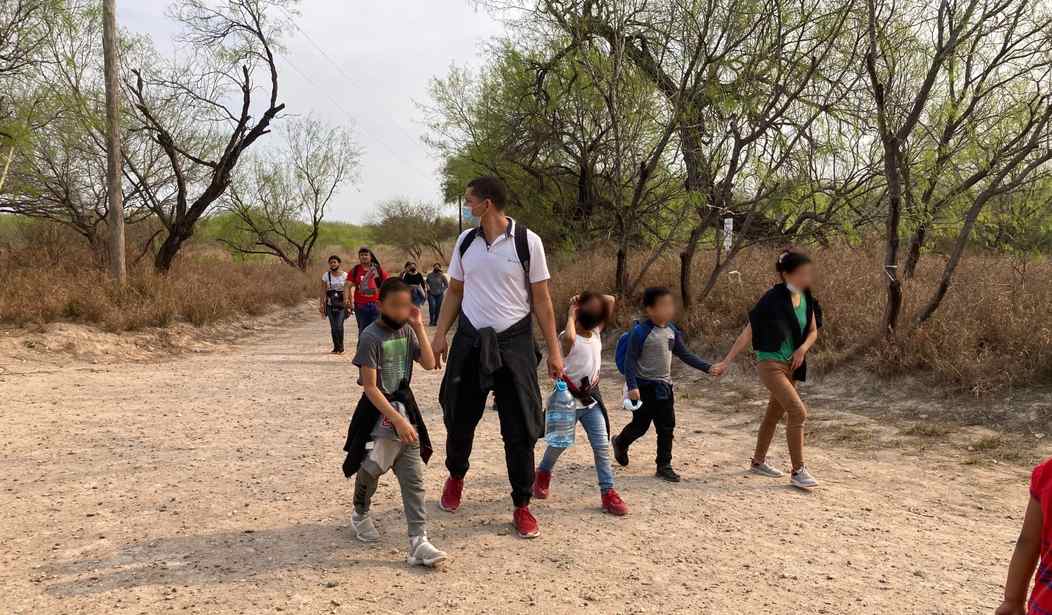MCALLEN, Texas — Junior and I had been at the private property by the Rio Grande River, which has been in his family for decades, for less than ten minutes on Sunday before 49 illegal immigrants used the road that goes through the property to turn themselves over to Border Patrol.
Originally born in Chicago, Junior grew up in the tiny neighborhood that once populated the now untamed wildlands by the U.S.-Mexico border. He lived there from 1964 to 1983, eventually leaving when he enlisted in the U.S. Army. Growing up there, he only saw five or six groups of illegal immigrants trespassing their property.
Now living close by with his own family, Junior often visits the land to think about his childhood and his parents, who have passed away. As the sun was slowly setting, it was quiet, and I could see why Junior liked to come out to enjoy the natural setting. A few minutes later, another round of illegal immigrants started to walk by.
It's that now constant interruption of illegal immigration that emotionally hurts Junior.
"It's the time to myself; that's what they're stealing from me," he said. "I didn't invite them to come here."
Recommended
On top of the trespassing, the private and federal land is littered with all sorts of discarded items, like empty plastic bottles and backpacks. Ever ubiquitous in the age of COVID-19, used masks also litter the path.
Junior told me how the bus would drop him and his siblings off after school, and they would do their homework outside under the tree shade where their mom would come out to bring them food. They would fish in the Rio Grande River until two o'clock in the morning sometimes.
The issue of immigration began to change for the worse after Junior left his childhood home.
"When Obama was president, they were constantly coming in. Picture a cut, and it's constantly bleeding. Trump came in, and he put a band-aid [on it]. It stopped! For four years, it stopped, nothing, and then all of sudden this past January, they started coming in [again]" because of President Joe Biden's campaign promises, Junior said.
"Where are you from?" we would ask the illegal immigrants, to which they would answer Honduras, El Salvador, or Guatemala. We would then ask where they planned on going after being processed by Border Patrol. Intended destinations included Louisiana, Wisconsin, Los Angeles, and San Fransisco.
"You should go to Delaware. That's where President Biden is at," Junior would tell the groups in Spanish.
"I think [the U.S.] should send them to Deleware, and then ask [Democrats] in six months if they still think it's not a crisis," he told me.
At one point in the night, we asked one group if there were more people coming. One person said yes, but explained a lot of them were getting lost on the different paths.
When we finally left his family's land after about four and half hours, 239 illegal immigrants had walked by us, though there is another road nearby on federal land that groups tend to use as well. When I was with Border Patrol agent Chris Cabera at the same spot on Friday, 263 illegal immigrants walked by on their way to the processing site.

























